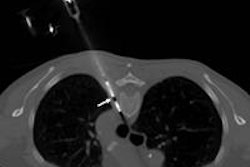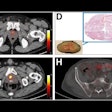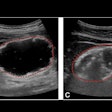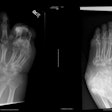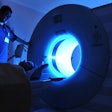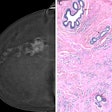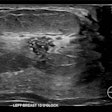
The U.K. Royal College of Radiologists (RCR) has published revised recommendations for nursing care in interventional radiology. The 18-page practical guide can be downloaded free of charge from the RCR's website.
The new edition (Ref No: BFCR[14]7) outlines the issues, sets out models for nursing staff, and describes the role of the interventional nurse in the management of patients. It is designed to help radiologists in their discussions with regard to setting appropriate levels of nursing support for departments.
"Since this document was originally published in 2001 and then updated in 2006, there have been further skills mix developments in departments of clinical radiology and greater clinical responsibility among interventional radiologists, some of which have been devolved to nursing staff," noted Dr. Pete Cavanagh, the RCR's vice president for clinical radiology, and Brenda Munro, chair of the Royal College of Nursing Imaging Nurses Forum, in their foreword.
"In some clinical radiology departments, this has resulted in the role of the healthcare assistant (HCA) expanding. The HCA (or clinical support worker) will, after suitable training, be able to fulfill some of the functions that were previously the domain of registered nurses," they added.
Nursing support is not optional for invasive procedures, and is essential both within hours and out of hours, according to the guidelines. When nursing support is inadequate, patients will be left in the care of radiographers who have other tasks to perform and whose training is different from that of a qualified nurse, and training radiographers to monitor patients may not be ideal.
The following measures can help ensure good practice:
In departments with a large interventional radiology workload, whole-time equivalent registered radiology nurses should provide at least one in five on-call cover. Provision of two nurses per dedicated interventional room is appropriate, and depending on the type of procedure and level of training and experience available, an HCA may be acceptable under strict protocols.
In larger units, CT and ultrasound rooms will require either one or two interventional nurses if complex interventions are performed on sedated patients. CT and ultrasound should have their own dedicated, adequately trained, and qualified individuals who will assist with simpler invasive procedures such as biopsy or drainage in nonsedated patients.
In smaller departments, interventional radiology nurses should deal with all daytime procedures. Staff in the operating room (OR) can be trained in interventional techniques and departmental management, but most ORs already run a skeleton staff for out-of-hours' work and this extra work would increase the burden.
HCAs with appropriate training and further education can be useful, but can never entirely replace registered nurses. They must be supervised closely and should not make standalone clinical judgments.
Also, intervention radiological cases may be of secondary importance when the pressure is high, and the two environments are distinctly different. Many wards and casualty departments are understaffed, and the use of nurses from recruitment agencies is high in some hospitals; even with training, such nurses are unlikely to have the skills and experience to carry out interventional radiological nursing safely, stated the authors.
Safety and monitoring of patients must be a priority, and registered nurses, assistant practitioners, and HCAs are a vital part of the interventional radiology team and should be available for all interventional radiological procedures, the authors concluded.
"Departments of clinical radiology carrying out interventional radiology procedures should have sufficient registered nursing and support staff to carry out those procedures adequately and safely, both within the normal working day and outside conventional working hours. For patients who need to undergo general anesthetic procedures, there should be sufficient skilled staff available to carry these out safely," they noted.
For more details on the guidelines, visit the RCR's website.





